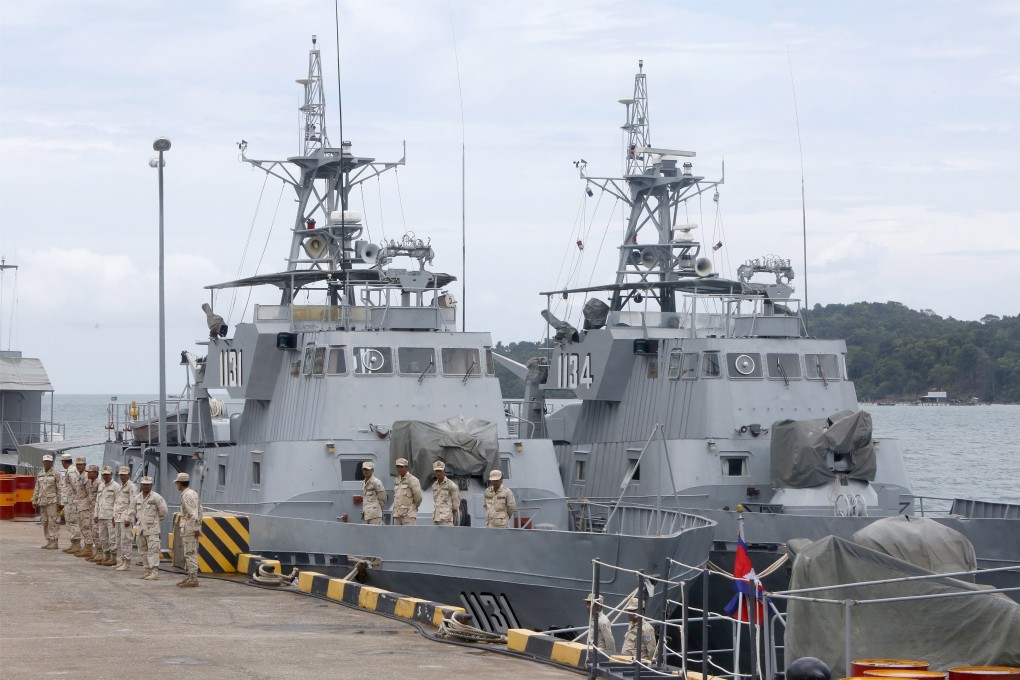Cambodian officials accuse Washington of interference after denying US attaché full access to Ream Naval Base
- The defence ministry says American Colonel Marcus Ferrara asked to inspect parts of Ream that were not named in proposals
- Two US-built structures there were razed last year, sparking concerns that China will benefit from upgrades to the base

Lieutenant General Suon Samnang, deputy general director of policy and foreign affairs at the Cambodian defence ministry, on Friday said outgoing US defence attaché Colonel Marcus Ferrara had wanted to inspect a site at the Ream Naval Base where American-built facilities once stood.
The buildings were demolished without notifying Washington last year, and the subsequent rapid completion of two new structures this year sparked US concerns that China would benefit from the upgrades at the base in Sihanoukville province. Defence Minister Tea Banh last week said China would help modernise and expand Ream, but added that Beijing would not be given exclusive privilege to use the base.
“[Ferrara] tried to inspect other parts [of the base] which were neither necessary nor named in prior proposals submitted to us,” Samnang told local media in a transcript published by the defence ministry’s information department. “He immediately made a new proposal, aiming to advance as close as to our kitchens and bedrooms. It is an interference into our heart.”
Cambodia’s defence ministry, in a separate statement, said the US actions could “further negatively impact the defence relationship” between both countries, and insisted that Washington “respect [Phnom Penh’s] sovereignty and military classification”.
The ministry added that future requests for a visit would be considered but they should remain as such rather than becoming “inspections or searches”.
Ferrara’s visit to the base was requested by US Deputy Secretary of State Wendy Sherman after her visit to the Cambodian capital on June 1, during which she articulated “serious concerns” about China’s potential military presence at the base. But soon after the military envoy’s visit, the US embassy in Phnom Penh released a statement accusing Cambodian military officials of refusing to allow Ferrara full access.